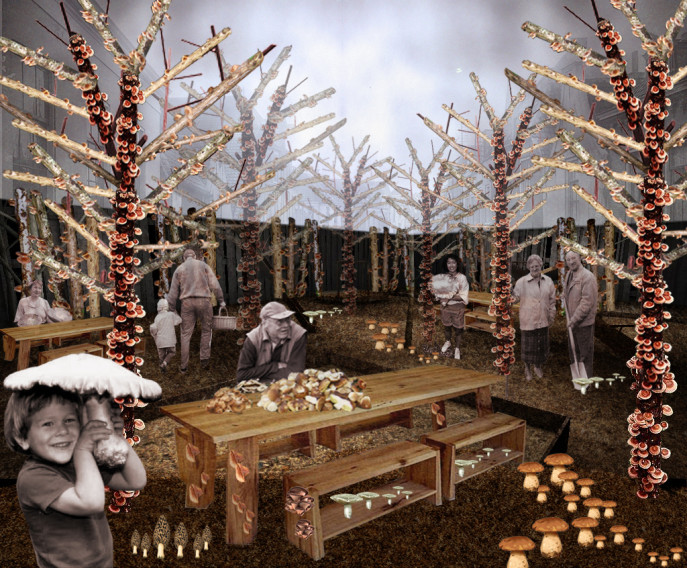
[portfolio_slideshow]
TEAM: Jacques Abelman with de Stuurlui Stedenbouw, in collaboration with CITIES
STATUS: constructed, opening November 2012
The Mushroom Trees installation is an experiment in converting organic waste from the city back into food using some of nature’s most innovative workers: mushrooms.
The three species of Oyster mushrooms we are experimenting with eat lignin and cellulose, the building blocks of wood– also found in paper, cardboard, and coffee grounds. Coffee grounds from the Coffee Company, shredded paper from the Proost and Brandt paper factory in Diemen, and packaging cardboard have been cleaned, sterilized, and inoculated with different species of oyster mushrooms. The mycelia, or white matter that you see in the trees, digest the woody waste and produce edible mushrooms. Look for brown, grey, pink, and yellow oysters.
Mushroom Trees create awareness about the potential of the waste that the city produces every day. In nature, there is no waste. Many urban waste streams can be transformed back into useful, and delicious, products. This contributes to more sustainable cities.
The mushroom tube forest is presently being monitored by a classroom of school children in North Amsterdam.